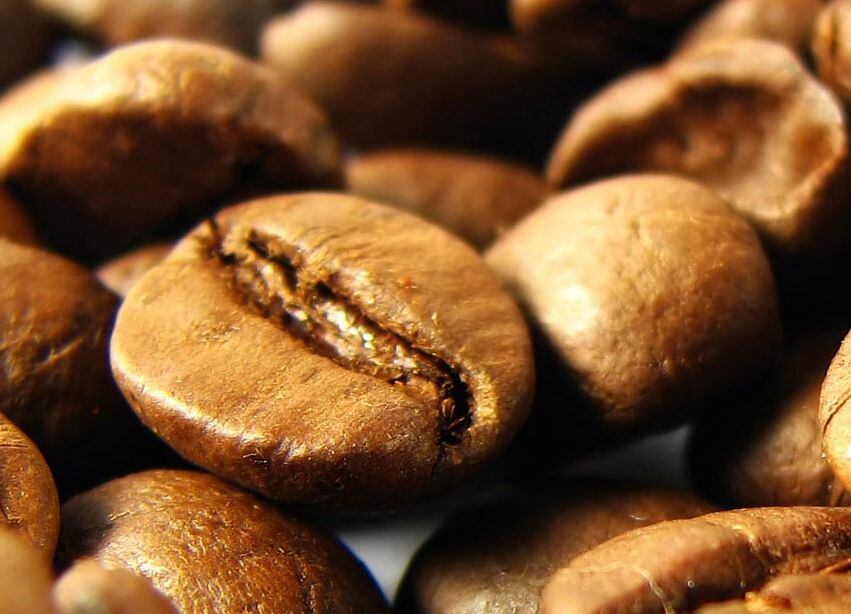Crude caffeine is a by-product of the decaffeination and purification process used to isolate pure caffeine, and thousands of tons of it are produced annually, notes Kraft in a patent application (click here) filed last September and published on April 4.
Crude caffeine provides unique functional benefits not found in pure caffeine
What makes crude caffeine special is that it contains other coffee-based bioactives as well as caffeine, and has been shown in animal studies to reduce levels of beta-amyloid plaques associated with Alzheimer’s disease, says the application.
“Crude caffeine provides unique functional benefits not found in pure caffeine.
“Crude caffeine demonstrates the ability to reduce the number of or prevent the formation of amyloid plaques in the hippocampus of a subject. Pure caffeine, on the other hand, does not have this effect.”
The patent application, covering “methods for reducing a-beta-1-42 levels, methods for reducing or preventing formation of amyloid plaques, and methods for improving cognitive function and memory retention in a subject”, follows a related application filed in 2011 covering neuroprotective foods and supplements containing crude caffeine.
Crude caffeine is currently seen as a waste product
Its inventor is Dr Yi-Fang CHU, who was formerly head of Kraft’s global coffee wellness research group, but is now with PepsiCo Global Nutrition.
Dr CHU is an expert on the bioactive effects of compounds in coffee, and editor of a 2012 book entitled ‘Coffee: Emerging Health Benefits and Disease Prevention’.
The crude caffeine cited in his applications is obtained from supercritical carbon dioxide decaffeination of roasted coffee beans and contains 45-98% caffeine and 2-55% coffee-based bioactive components.
Crude caffeine from tea and chocolate would not be expected to demonstrate the same functional benefits
But could similar cognitive benefits be derived from other sources of caffeine aside from coffee beans?
Probably not, speculates Dr CHU. “Crude caffeine obtained from other caffeine sources, such as tea, chocolate, and the like, would not be expected to demonstrate the same functional benefits as crude caffeine described herein, because tea- or chocolate-sourced caffeine does not have the coffee-based bioactive compounds.”
The “unexpected benefits” of crude caffeine are “believed to be the result of administration of an effective amount of certain coffee-based bioactive compounds and /or a more than additive effect of caffeine with coffee-based bioactive compounds”, he adds.
Crude caffeine is packed with bioactive components not found in pure caffeine

In addition to caffeine, says Dr CHU, crude caffeine contains other bioactives including caffeic acid, coumaric acid, vanillic acid, quercetin, catecbin, abscisic acid glucose ester, and threonine, which generally account for less than about 1% of crude caffeine by weight.
“Crude caffeine also includes melanoidins and about 1% fat. These coffee components may have chemical and biological activities that help reduce or prevent the aggregation of Ap peptides in the hippocampus.”
Crude caffeine could be added to soft drinks, cookies, cheese, crackers and powdered beverages
Meanwhile, crude caffeine is “particularly suited for non-coffee based food applications as an ingredient”, he adds.
“It is believed that crude caffeine is particularly effective as a functional ingredient to be used in various food products, such as in non-coffee applications like beverages, soft drinks, cookies, cheese, crackers, powdered beverages, and the like.
“The crude caffeine may also be recombined with roast and ground coffee, soluble coffee, and liquid coffee beverages.”
In other approaches, he says, crude caffeine “may be taken separately from food, such as by injection, ingestion as a pill, capsule, used in a transdermal patch, and the like. To this end, the crude caffeine may be formed into pills, capsules, tablets, films, coatings, and other consumable forms.”
Meanwhile, Kraft is also looking at further refining crude caffeine to remove the caffeine and create novel bioactive extracts that can be added to foods, beverages, or pharmaceutical products to “provide increased, glucose uptake, as well as antioxidant and anti-inflammatory activities”.
Animal studies

A recent Kraft study co-authored by Dr CHU and published in Food Chemistry (click here) in December 2012, showed that administering crude caffeine to mice with Alzheimer’s prevented memory impairment and reduced levels of beta-amyloid in their brains.
It also protected primary neurons from amyloid β peptide-induced cell death, said the authors, who noted that crude caffeine also “has potent hydrophilic antioxidant activity and may reduce inflammatory processes”.
Two studies published in the Journal of Alzheimer's Disease in 2009 (click here and here) also showed that crude caffeine decreases beta-amyloid levels in the brains and the blood of mice exhibiting symptoms of Alzheimer’s.
Kraft did not respond to requests from FoodNavigator-USA to comment on the patent application.
Click here to read the patent application.
